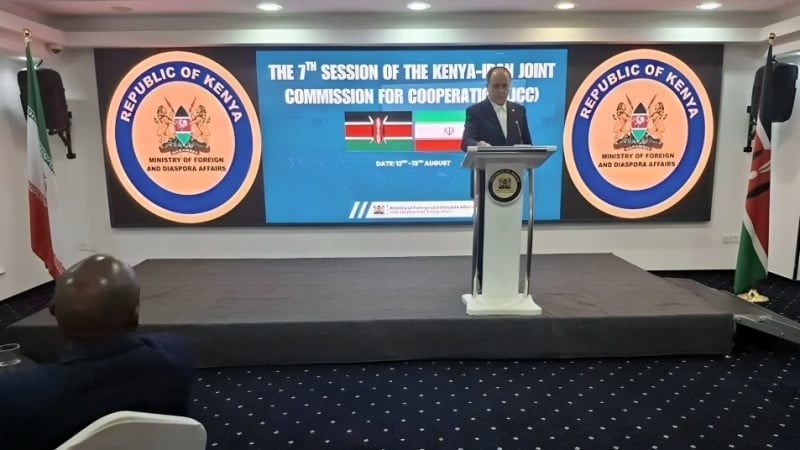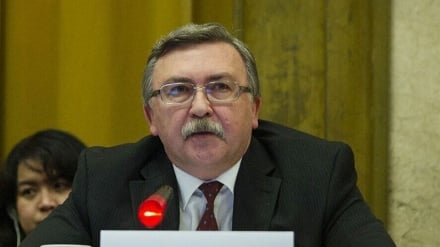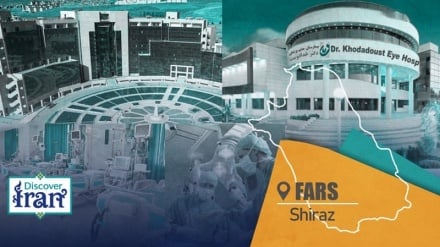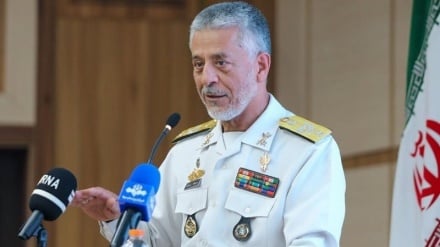Why do Iran’s diverse capabilities provide a golden opportunity for the development of African countries?
-

Gholamreza Nouri Ghezeljeh, Minister of Agriculture Jihad of the Islamic Republic of Iran
Pars Today – At a time when African countries face infrastructure challenges and a shortage of modern technologies, Iran—relying on its technical, engineering, and knowledge-based capacities—has created new opportunities for cooperation and technology transfer.
Gholamreza Nouri Ghezeljeh, Minister of Agriculture Jihad of the Islamic Republic of Iran, speaking at the Seventh Iran–Kenya Joint Economic Cooperation Commission held in Nairobi, the capital of Kenya, said: We are interested in strengthening our cooperation and transferring our technical expertise to Kenya in various fields.
Nouri Ghezeljeh added that expanding the economic cooperation of the Islamic Republic of Iran with the Republic of Kenya is on the agenda of the two countries’ Joint Commission, and that the two sides have set a target of achieving one billion dollars in trade.
He also stated that the establishment of a joint Iran–Kenya economic cooperation committee to follow up on agreements and signed documents, holding joint exhibitions, strengthening banking cooperation and removing existing obstacles, long-term planning to make Iran a bridge connecting Kenya to the Caucasus and Central Asia, and enhancing private sector cooperation between the two countries are among the approaches ahead.
The Iran–Kenya Joint Economic Cooperation Commission is co-chaired by Iran’s Minister of Agriculture Jihad and Musalia Mudavadi, Kenya’s Prime Minister and Minister of Foreign Affairs.
Kenya’s Prime Minister also said in the meeting: We agreed to establish a joint committee between Iran and Kenya. We encourage Kenyan traders and businessmen to take advantage of Iran’s sometimes unique capacities and capabilities. The Joint Cooperation Commission of the two countries can play an important role in strengthening convergence and expanding bilateral cooperation.
Iran has diverse economic capacities that can be highly beneficial for African countries. The ability to carry out large-scale projects in the fields of road construction, building construction, oil, gas, and petrochemicals is among these capacities. The market value of technical and engineering services in Africa is estimated at over 1 trillion dollars, and Iran can secure a significant share of it. Iranian products such as pharmaceuticals, medical equipment, industrial machinery, petrochemical products, and food items also have strong potential for an effective presence in African markets.
The African continent, with a population of over 1.4 billion and 55 countries, is considered a large and growing market. Its import–export turnover is around 1.5 trillion dollars, offering unique opportunities for Iran. Events such as Iran Expo 2025 and the Third Iran–Africa Economic Cooperation Summit have provided an ideal platform to showcase Iran’s capabilities and attract African partners.
Unlike some countries that view Africa through a colonial lens, Iran emphasizes mutual cooperation and shared interests—an approach that has been welcomed by African nations. Iran seeks to use diplomacy to expand its relations with African countries within the framework of an active and systematic foreign policy. Iran and African states share common views on many global issues and use these commonalities to strengthen political cooperation.
Active engagement in Africa can help boost Iran’s regional and international influence. Reducing dependence on traditional markets and expanding relations with developing countries are part of Iran’s resistance economy strategy. Cultural and historical commonalities between Iran and many African nations also pave the way for deeper and more lasting cooperation.
Iran has extensive experience in designing and implementing infrastructure projects, including in dam construction, road building, refineries, and power plants. African countries face a shortage of technical infrastructure, and Iran can play a role in this area by sending experts and engineering companies.
Iran’s human-centered, non-dominating approach—based on shared interests—creates the foundation for stable, win–win relations with African countries. Through active economic diplomacy, specialized exhibitions, and technology transfer, Iran can play an important role in Africa’s sustainable development while simultaneously enhancing its own economic position on the international stage.


